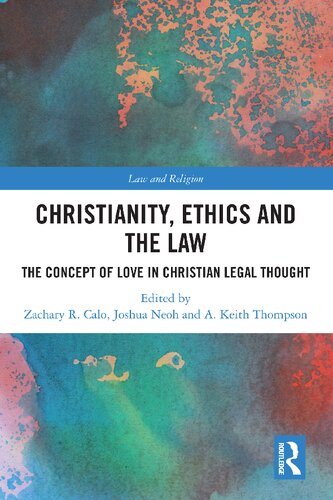

Most ebook files are in PDF format, so you can easily read them using various software such as Foxit Reader or directly on the Google Chrome browser.
Some ebook files are released by publishers in other formats such as .awz, .mobi, .epub, .fb2, etc. You may need to install specific software to read these formats on mobile/PC, such as Calibre.
Please read the tutorial at this link: https://ebookbell.com/faq
We offer FREE conversion to the popular formats you request; however, this may take some time. Therefore, right after payment, please email us, and we will try to provide the service as quickly as possible.
For some exceptional file formats or broken links (if any), please refrain from opening any disputes. Instead, email us first, and we will try to assist within a maximum of 6 hours.
EbookBell Team

5.0
48 reviewsThis book examines how Christian love can inform legal thought. The work introduces love as a way to advance the emergent conversation between constructive theology and jurisprudence that will also inform conversations in philosophy and political theory.
Love is the central category for Christian ethical understanding. Yet, the growing field of law and religion, and relatedly law and theology, rarely addresses how love can shape our understanding of law. This reflects, in part, a common assumption that law and love stand in necessary tension. Love applies to the private and the personal. Law, by contrast, applies to the public and the political, realms governed by power. It is thus a mistake to envisage love as having anything but a negative relationship to law. This conclusion continues to govern Christian understandings of the meaning and vocation of law. The animating idea of this volume is that the concept of love can and should inform Christian legal thought. The project approaches this task from the perspective of both historical and constructive theology. Various contributions examine how such thinkers as Augustine, Aquinas, and Calvin utilised love in their legal thought. These essays highlight often neglected aspects of the Christian tradition. Other contributions examine Christian love in light of contemporary legal topics including civility, forgiveness, and secularism. Love, the book proposes, not only matters for law but can transform the terms on which Christians understand and engage it.
The book will be of interest to academics and researchers working in the areas of legal theory; law and religion; law and philosophy; legal history; theology and religious studies; and political theory.